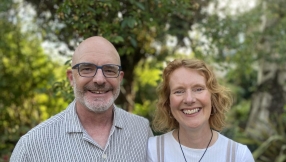Christian-Based HIV/AIDS Program Brings Hope to Ethiopia
|TOP|On Nov. 17, the Ethiopian Orthodox Church (EOC) formally launched a five-year HIV/AIDS prevention and control strategic plan at the Africa hall in Addis Ababa. Ethiopian President Girma Wolde-Giorgis and the UNAIDS Theme Group chair Bjorn Ljungqvist were present as prominent guest speakers, according to the national daily newspaper Ethiopian Herald.
On the occasion, Ljungqvist described the EOC’s initiative as "the best news he received in a very long time," according to the Ethiopian weekly Reporter newspaper.
"The Ethiopian Orthodox Church is the oldest religious movement in this country, so I think it is very appropriate that they take the lead in this very much needed effort to take the fight against HIV/AIDS into the communities and into the hearts and souls of every Ethiopian," he explained, comparing the EOC’s effort with that of the Muslim Council and the Catholic Church in the country.
"The church could make immense contributions toward the prevention and control of the pandemic since church services are available in every urban and rural area," added Ethiopia’s President Girma Wolde-Giorgis, according to Ethiopian Herald.
The EOC’s tremendous outreach capacity in over 40,000 parishes, deep understanding of community life and the different cultures of the nation, and the trust built with its 45 million followers are all the keys of success of the Church’s AIDS program, EOC Patriarch Abune Paulos said during the occasion, according to the Reporter.
On the other hand, the patriarch admitted, "We can achieve our goals if only we have sufficient resources to fund our program for the next five years."
|AD|Yet, according to the Reporter, Ljungqvist believed that more important than money is "such massive social mobilisation effort to help and support everybody to participate in the fight against this enormous but silent disaster" and to "encourage all those families, women and men, and especially children, affected by the suffering and death caused by the disease."
Good Samaritan Project and the Ethiopian Bible Society have also acknowledged the success of the use of religious approach in HIV/AIDS prevention education.
Earlier last week, at the start of a three-day training session jointly organized by the two organisations in Addis Ababa, Good Samaritan Project Head Deacon Fasil Asres told the Ethiopian Herald that HIV/AIDS prevention education in a religious context was effective to bring about behavioural change among communities, based on their experience over the past four to five months.
The training program was offered to 50 instructors drawn from higher education institutions, students and preachers. The organisers are planning to expand the training to a national level.
The HIV/AIDS epidemic has been a very serious social problem in Ethiopia, according to Ambassador Vicki Huddleston of the United States, who attended the launching event of the EOC’s HIV/AIDS program.
"It is expected that 1.2 million Ethiopians will have died from HIV/AIDS related causes by the close of 2005," she said, as quoted by the Reporter. "If present trends continue, 1.8 million will be lost by 2008. Ethiopia now has the fifth largest population of HIV-infected people in the world."
Huddleston also noted that there are presently more than 800,000 HIV/AIDS-orphaned children in Ethiopia.
Eunice Or
Christian Today Correspondent













